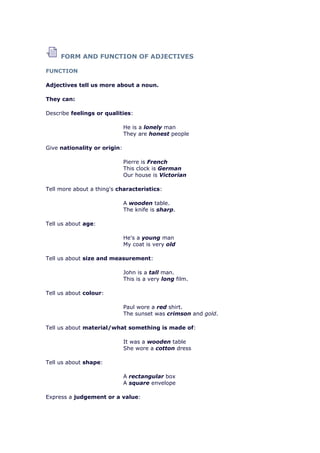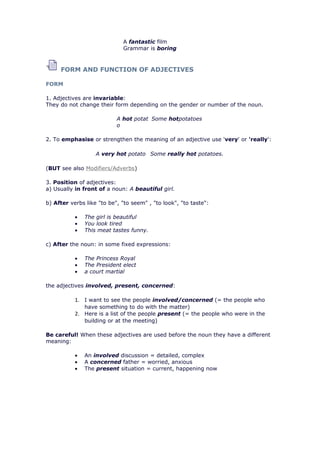1) Adjectives are used to describe nouns and provide additional information about their qualities, characteristics, or properties.
2) Adjectives have a standard form and do not change based on the noun's gender or number. They can be placed before or after nouns and certain linking verbs.
3) Comparisons of adjectives involve forms like "more/less" to show differences or "as...as" to show similarities, as well as irregular comparatives like "better/best" and superlatives involving "the."






